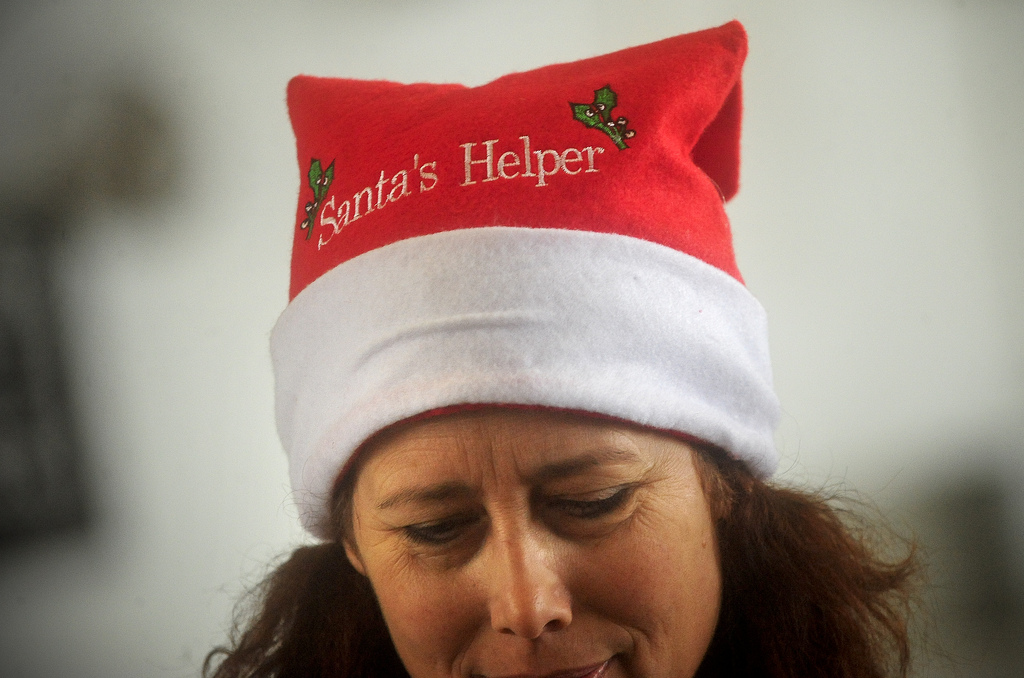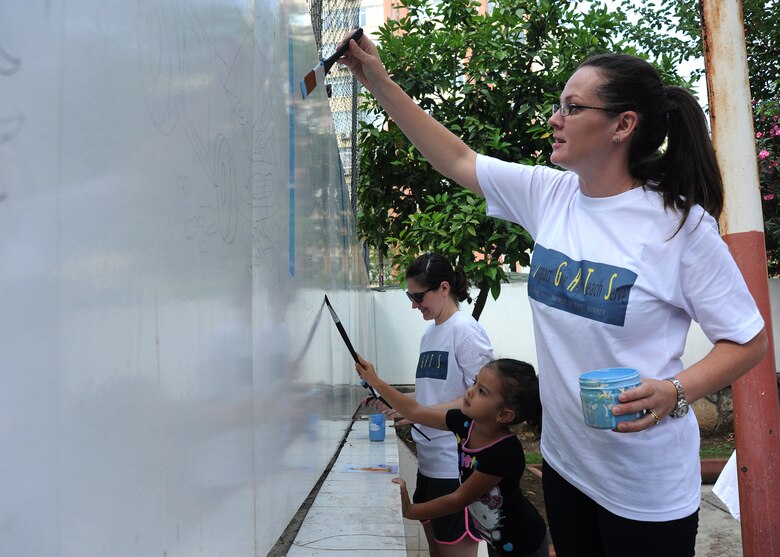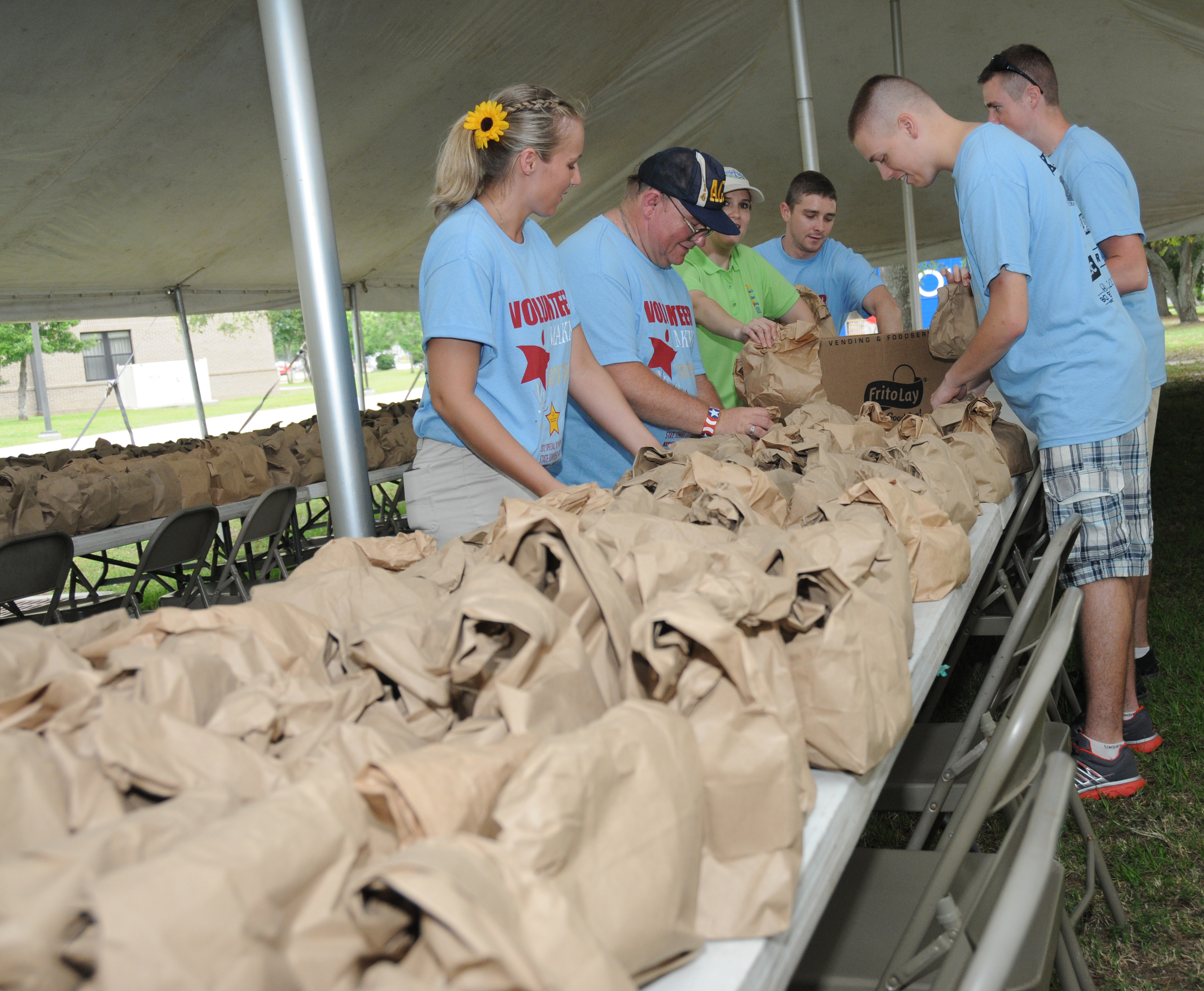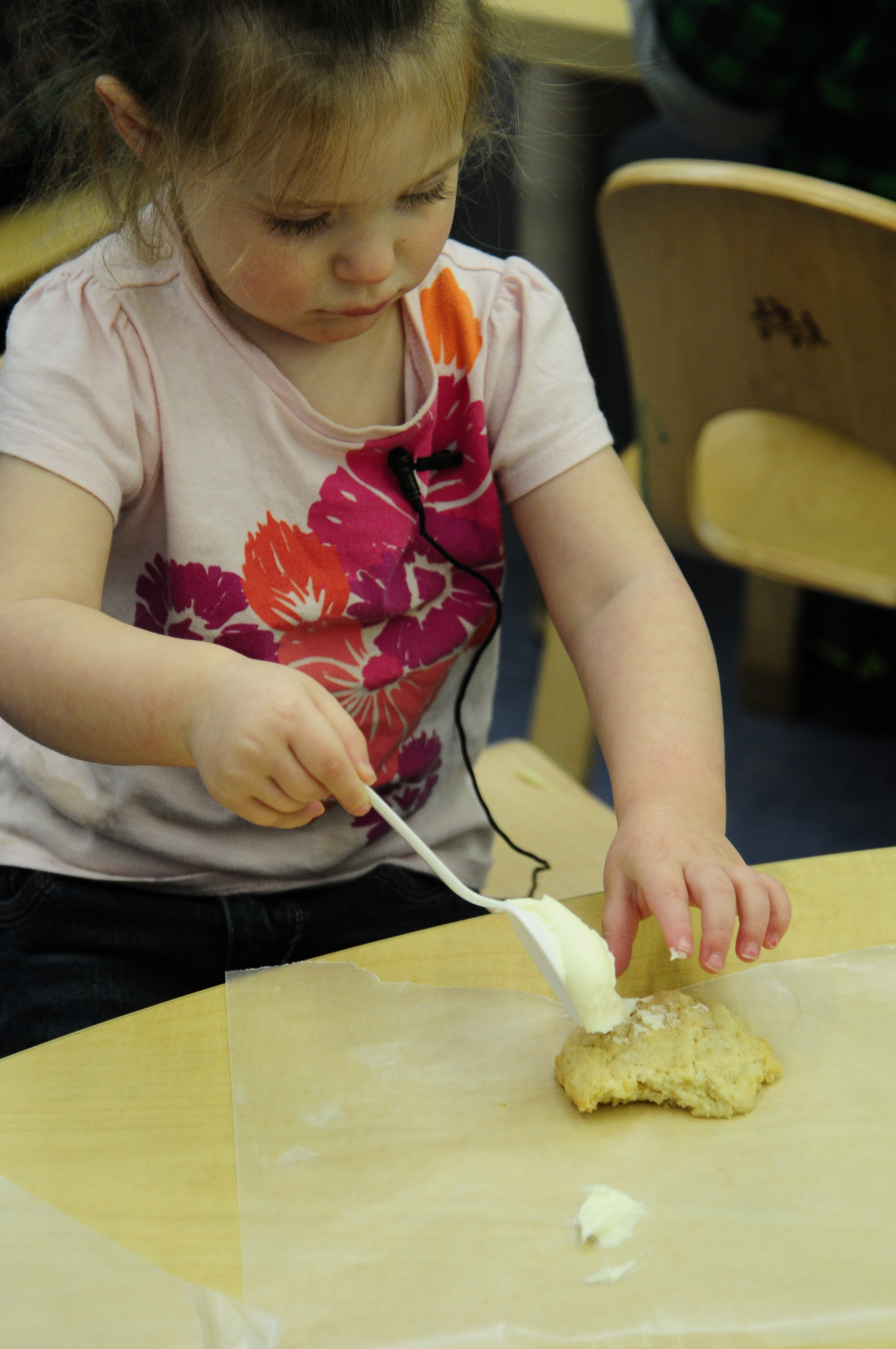
Ruth
stated:
Lee was deployed with the Marines in Afghanistan and Christmas during
this time was a difficult one for me. David
and Sally, our two children, and I put together a care package with presents to
send to Lee, hoping it would get to him by Christmas.

When I mailed it off, I felt incredible
melancholy. I could not seem to feel joy
and gratitude as I heard Christmas songs and watched those around me getting excited. I felt only bitterness, so I didn’t put up a
Christmas tree or many decorations, and could not gather or create enough
excitement to help my children feel the spirit of Christmas as I continued to
focus on my own sense of loneliness.
Before Christmas, someone started putting Christmas presents outside
our door. Every night a new present
arrived with the giver vanishing before we could get there.

David and Sally looked forward to this
surprise every night. I still don’t know
who was leaving these presents for us, or if they know the impact they had, but
they taught me a valuable lesson about service and kindness.
Those who live only for themselves eventually shrivel up, as I was. As we forget ourselves in service to others,
we are the ones who flourish and grow.
When I think of some of life’s happiest and peaceful moments for me,
they involve doing service and kind acts for people around me. Being kind and serving others causes us to
listen to other people—not just to hear what they’re saying, but to listen to
what is not being said. Being able to
alleviate someone’s suffering and sense of loneliness is a gift that we can
give to those around us.”


A woman said, “I feel blessed to understand that when I am giving to
others I don’t have time to feel sorry for myself.”
“If you don’t want to be sad or angry at your situation, the way to
fix that isn’t staying in that place,” says Emma Anderson, from Los
Angeles. “It’s by getting out and
helping someone else because it helps you not be selfish, and not think about
your own problems. It’s almost like a
distraction, but it’s one that will heal you.”
When we want to heal the soul, turning inward doesn’t work. The triage of soul healing is found in
turning outward to people. One man said,
“I was at a point where I needed healing.
I was asked to serve a woman with MS by helping put her to bed, night
after night. After time, what seemed
like an incredible burden became my balm.
That’s what service does—it heals us.”

Losing ourselves in service to others gives purpose to our own
lives. Another said, “We become more
substantive as we serve. It’s easier to
find ourselves because there’s so much more of us to find.”
It’s easy to become self-focused.
Our needs, our wants, our desires and ambitions can be so consuming that
they crowd out other people. We often drown
in things that can be so superficial. Of
course we want to improve our life and have goals. But when our pursuit of personal growth and
happiness causes us to ignore others, our selfishness leads to stagnation, not
growth; despair, not happiness, and ultimately, loneliness. Neal A. Maxwell put it this way: “Why worry
about selfishness? Because selfishness
is really self-destruction in slow motion.”
(Music and the Spoken Word)
So often we are
so wrapped up in what we are doing that we don’t see another’s needs. We are blinded to their loneliness or sadness
or hurt or pain. We are so focused on
what we lack that we don’t see what another lacks. One church leader said, “First observe, then
serve.”
We can’t
recognize another’s need if we don’t see it.
Ferris Bueller said it clearly: “Life moves pretty fast. If you don’t stop and look around once in a
while, you could miss it.”
First, we must see—see those who are
invisible and see those who need to be encouraged, lifted, and healed.
Second, we must be willing to interrupt our
business, even for only a moment, while we are on our way to do something
else.
Third, we must act through love. The more we
love, the greater our capacity to love becomes. The more love we share, the
more love we will have to give.
Service can be
expensive and time consuming, but it doesn’t have to be.
A young man was
caught up in the fervor of the California gold rush. He sold all his possessions to seek his
fortune in the California rivers, which he was told were filled with gold
nuggets so big that one could hardly carry them.

Day after
endless day, the young man dipped his pan into the river and came up
empty. His only reward was a growing
pile of rocks. Discouraged and broke, he
was ready to quit.
Then an old prospector with a bulging leather pouch fastened to his waist, said to him, “That’s quite a pile of rocks you are getting there, my boy.”
“There’s no gold here. I’m going back home.”
Walking over to the pile of rocks, the old prospector said, “Oh, there is gold all right. You just have to know where to find it.” He picked up two rocks and knocked them together. One of the rocks split open, revealing several streaks of gold sparkling in the sunlight.

“That’s next to
nothing,” said the young man. “I’m
looking for nuggets like the ones in your pouch, not just tiny flecks.”
The old
prospector handed his pouch to the young man, who looked inside expecting to
see several large nuggets. He was
stunned to see that the pouch was filled with thousands of flecks of gold.
“Son,” the old
prospector said, “You’re so busy looking for nuggets that you’re plum missing out
on filling your pouch with these tiny flecks of gold.”
“By small and simple things are great things brought to pass… And by very small means the Lord bringeth about the salvation of many souls.” (Alma 37:6-7)
So how can we collect the gold flecks of service?
First, charity begins at home. Here is where we learn to practice the Golden Rule to treat all as we would wish to be treated. None of us want to be on the receiving end of thoughtless words or actions, so we shouldn’t shame, put down, or be sarcastic to our children or husbands. It is our example that can teach our family members to have love one for another.
“By small and simple things are great things brought to pass… And by very small means the Lord bringeth about the salvation of many souls.” (Alma 37:6-7)
So how can we collect the gold flecks of service?
First, charity begins at home. Here is where we learn to practice the Golden Rule to treat all as we would wish to be treated. None of us want to be on the receiving end of thoughtless words or actions, so we shouldn’t shame, put down, or be sarcastic to our children or husbands. It is our example that can teach our family members to have love one for another.

Rachel, a new mother, said that one day she really wanted to go out and lift someone else's burden, but her baby was sick. "Instead of getting frustrated or anxious about not being able to go out, I rocked him in my arms, sang him my favorite Christmas hymns, played patty-cake. I am so grateful to be his mom; to be the one who gets to lift his every burden. I thank God for the opportunity I have to serve my sweet baby."
Other places
where we have ample opportunity to serve is in our church and communities. By treating each other kindly, speaking words
of support and encouragement, and being sensitive to each other’s needs, we can
create loving unity. Where charity
exists, there is no place for gossip or unkind words or deeds.
Church and community members can unite in meaningful service to bless the lives of others. If you want to join with others in community service, ample opportunities are found at JustServe.org.

“…we are
surrounded by those in need of our attention, our encouragement, our support,
our comfort, our kindness—be they family members, friends, acquaintances, or
strangers. We are the Lord’s hands here
upon the earth, with the mandate to serve and to lift His children. He is dependent upon each of us.” Thomas Monson
Kirt Saville
stated:
· Service should be given with a
smile and with no expectation of a return
· Too often we pass by
opportunities to serve because we can’t see them.
· Service is seldom convenient.
I have found
that when a service is needed, it is often at the worst possible time. I am on a deadline, or have a meeting, or
something that has to be done today.
If we put off serving until a convenient time, it is often too late. I wanted to take a meal to my neighbor who was sick. Life was hectic and I kept postponing the meal, until she was better and didn't need me. I felt so bad. When I take time to serve when it is needed, I find the other things I need to do somehow get done. Life just gets a little more compressed.
If we put off serving until a convenient time, it is often too late. I wanted to take a meal to my neighbor who was sick. Life was hectic and I kept postponing the meal, until she was better and didn't need me. I felt so bad. When I take time to serve when it is needed, I find the other things I need to do somehow get done. Life just gets a little more compressed.
“God bless us
during this glad season with an increase of love, with a decrease of
selfishness, with an enlarged sense of service, and a greater desire to be
helpful to those in distress.” (Heber C. Kimball)
Ruth’s story at
the beginning of this blog ends with these words: “I am grateful for the
opportunities that I have to serve and find ways to be kind to those around
me. I am grateful for the times I have
been a recipient of these gifts of service from those who could see my suffering
and have taught me that seemingly small acts, kind words, and friendly smiles
can have profound influence on those around us in our homes, among our friends
and neighbors and communities.”










